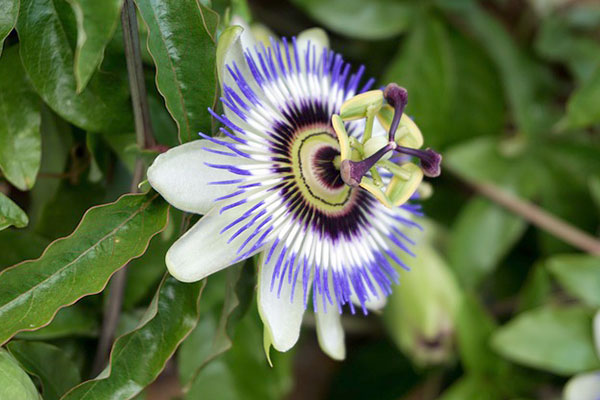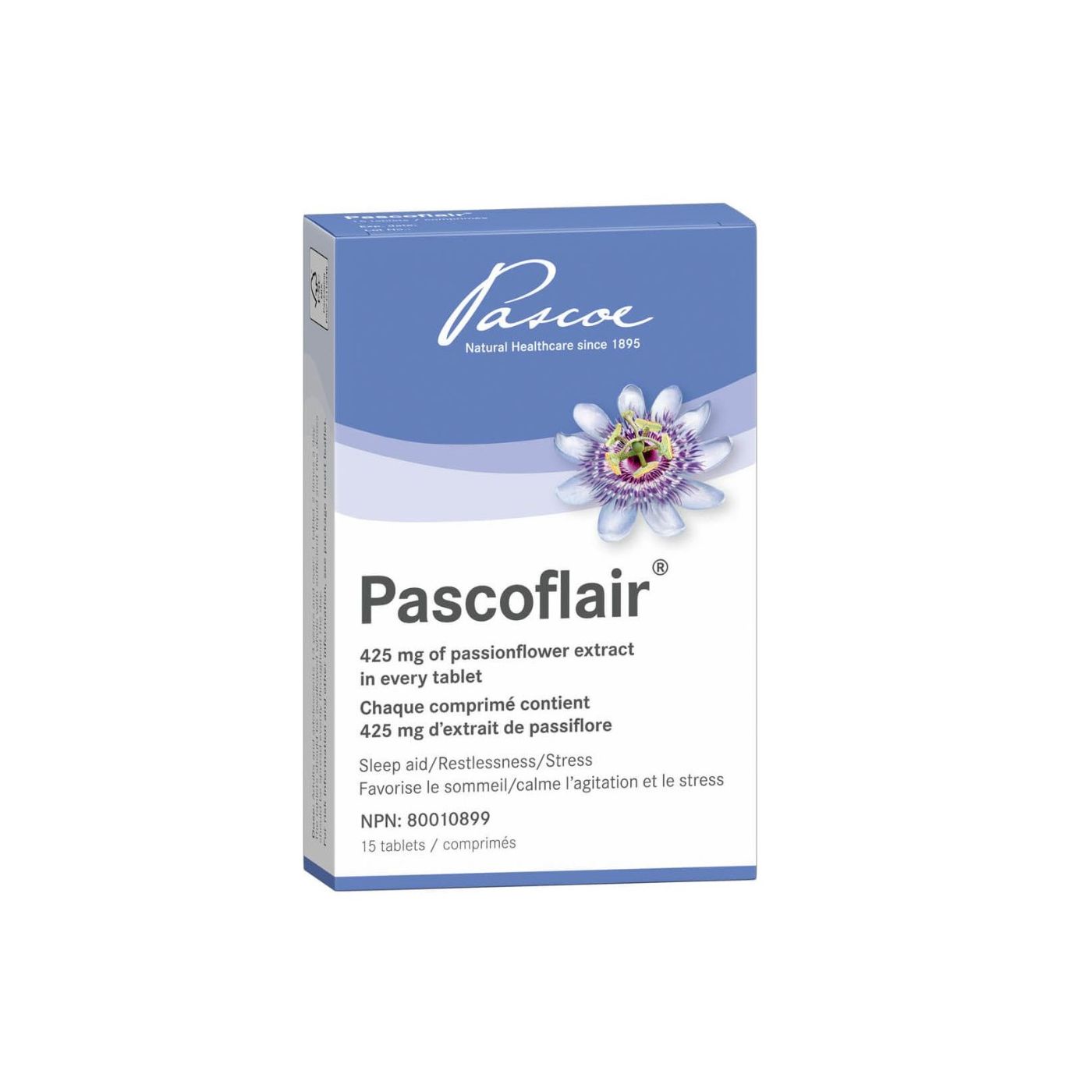When You Can't Sleep: Passionflower or Melatonin?
Passionflower and melatonin: Both are indicated for sleep, however, they are very different. We have done a comparison to help you find out if either of these sleep aids are right for you, and if so, which one.
Sleep is essential for an individual's well-being and healthy immune system. We spend up to one-third of our lives asleep, and there's a very good reason why. It is often thought that when you close your eyes and drift into sleep, your mind and body powers down. However, this is not the case. In reality, sleep is an active period during which important processing, restoration and strengthening occurs.
One of the most important roles of sleep is to help us consolidate memories. Each day we acquire new information and experiences. These need to be processed and stored. Memories are transferred from our short term memory to our long-term memory. Much of this is done while we sleep.
Sleep also helps us to be more alert, present and feel better overall. Sleep restores and rejuvenates our bodies. Sleep is needed to grow muscle, repair tissue and synthesize hormones. Sleep is essential to help us function physically, mentally and emotionally. Yet, many of us struggle to get a restful sleep. Insomnia and sleep disorders are extremely common in North America. Symptoms of sleep disorders and insomnia may include:


- Difficulty falling or staying asleep
- Fatigue during the day
- Irritability or anxiety
- Depression
- Lack of concentration
While symptoms can be debilitating, there are many medications and sleep aids to help sleep disturbances or insomnia. Two popular sleep aids available over-the-counter include passionflower (passiflora incarnata) and melatonin.
Passionflower (Passiflora incarnata)
Passiflora is a beautiful fast-growing perennial flower native to the Americas. Passion flower is part of the passifloraceae species and the flowers grow on a vine. Commonly known as maypop, Passiflora incarnata blooms in hundreds of varieties and the vine is considered invasive in some regions. The maypop is a member of the passionflower genus Passiflora. The flowers are cultivated not only for its beauty, but Passion flower is traditionally used in herbal medicine for its medicinal purposes. The Passiflora incarnata species is different from most flowers you may come across. The flower has five petals that are a bluish-purple-white.
Health Canada indicates the use of passion flower as a herbal sleep aid. The British Herbal Compendium recognizes the use passion flower for sleeping disorders, restlessness, nervous stress and anxiety. The German Commission E approves passionflower use for nervous restlessness.
The herbal medicinal uses and Passion flower benefits include anti-inflammatory, sedative, insomnia, anxiety, nervousness and attention-deficit/hyperactivity disorder. As a sleep aid, the herb is available as a herbal tablet or passion flower tea.
How does Passiflora Incarnata work?
Passionflower is a herb used to calm free-running thoughts in individuals with insomnia. Controlled trials reveal the alternative natural remedy, passion flower, does so by acting on the central nervous system. It temporarily binds to the GABA (gamma-aminobutyric acid) receptors to relax the body. GABA inhibitory neurotransmitter
- Passion flower inhibits GABA reuptake. This means the herb prevents the brain from absorbing GABA and increases the concentration of GABA in the brain. Passion flower does not cross the blood-brain barrier.
- Passionflower has no affect on GABA release.
- Passionflower also binds to the GABA-B receptor. Passiflora acts as modulators to help decrease anxiety and create a calming effect.
- Passion flower does not bind to the GABA-A receptor. This explains the lack of addiction potential in contrast to chemical sedatives or pills.
- Unlike Passion flower, pharmaceutical pills, such as benzodiazepines, and alcohol bind to the GABA-A receptor causing side-effects.
A clinical trial performed in 2017 on mice revealed Passiflora as a sleep aid can have a positive effect on sleep quality. Passion flower significantly increased slow-wave sleep and reduced REM sleep. Passionflower helped the rats fall asleep faster.
Another evidence-based study found when using passionflower as a sleep aid had a sleep-inducing effect and improved the duration of restful sleep.
A placebo-controlled trial of passion flower used in reducing menopause symptoms found that the herb significantly improved symptoms of insomnia, headache and depression. Whether taking Passionflower as a pill or passionflower tea, the herb is non-habit forming, does not cause drowsiness and does not have sedative properties. There is also no concern for short-term or long term use of passion flower as a sleep aid.
Melatonin
Melatonin (N-acetyl-5-methoxytryptamine) is a hormone that is naturally produced by the body's pineal gland. The pineal gland is a tiny endocrine gland found in the brain. While extremely small, the pineal gland controls everything from how you grow to your melatonin receptors. Melatonin receptors and hormones control the bodies sleep-wake pattern. Also known as your circadian rhythm, the sleep-wake pattern determines when to sleep and when it is time to be awake. Your circadian rhythm is a 24-hour internal clock. Ideally, the sleep-wake rhythm includes 7-9 hours of sleep followed by 15-17 hours of wakefulness.
Your circadian rhythm works best when you have healthy sleep habits, like going to bed and waking up at similar times day-to-day. The human body activates our melatonin receptors and produces more melatonin in darkness. Conversely, melatonin levels are inhibited by light. Your sleep-wake cycle and melatonin secretion may be disrupted by shift-work, jet lag, a change in time zones or by watching a late night-time sporting event on TV. When our melatonin levels do not rise adequately and we don't get a good night sleep, this can lead to sleep problems or sleep disorders. In this case, the use of a sleep aid like melatonin supplementation may be needed.
How does Melatonin work?
When taken as a supplement or sleep aid, the controlled-release of exogenous melatonin works by increasing melatonin production, the hormone found naturally in the body. Melatonin supplements are effective when used correctly. Melatonin supplements and sleep aids do not initiate sleep for individuals experiencing sleep disorders. Rather, the prolonged-release of melatonin administration is a body clock regulator.
Melatonin supplementation can be particularly effective in helping with sleep problems such as jet lag, non-24-hour sleep-wake disorder or patients taking beta-blockers. Melatonin treatment for age-related insomnia and other conditions A-Z, like jet lag, can help our hormones to reset the timing of your need to fall asleep. It also supports our circadian rhythm reminding your body that it needs to start melatonin secretion.


Melatonin administration has an outstanding safety profile. However, the lack of meta-analysis, systematic reviews or placebo-controlled trials on the long-term effects of this synthetic hormone sleep medication has raised concerns. Melatonin dietary supplements can be made from animals or microorganisms, but these can come with additives that can pose other health concerns. When choosing a sleep aid, it is best to stick with the synthetic version.
In Canada, exogenous melatonin is the only sleep supplement hormone that is not regulated by Health Canada. In other parts of the world, such as Europe, melatonin supplements are a prescription-only medication for sleep issues, such as jet lag. As such, pills are not available over-the-counter. Melatonin treatment can also cause side effects such as intense dreams and a feeling of drowsiness or grogginess the next-day. This information is important to keep in mind when choosing to take exogenous melatonin as an OTC sleep aid.
Compare - Do your homework and then decide what's right for you
As with all OTC sleep aids, it is important to consider the pills active ingredients, the benefits and the side effects of any medication. Here is a simple breakdown of the fundamental differences between passionflower and melatonin:
|
Melatonin vs. Passionflower (Passiflora) |
Natural |
Fast Acting |
No hangover effect |
Non-addictive |
Calms the Mind/Nervous System |
Low Cost |
Hormonal |
|
Passionflower (Passiflora) |
Yes |
Yes |
Yes |
Yes |
Yes |
No |
No |
|
Melatonin |
Synthetic |
Yes |
No |
Yes |
No |
Yes |
Yes |
Choose Wisely
Not all-natural sleep aids and sleep remedies are created equal and some are backed by science, systematic reviews and meta-analysis. While the list of over-the-counter sleep aids, pills and medications seem endless, it is important to know what you put in your body.
Sleep aids are available in the form of prescription drugs or over-the-counter sleep aids, include:
- Diphenhydramine HCL
- An antihistamine used to treat allergies. Diphenhydramine has a sedating effect. In low doses Diphenhydramine induces sleep
- Sominex
- An antihistamine
- Doxylamine Succinate
- Doxylamine succinate tablet is an antihistamine and also used as a sleep aid
- L-tryptophan
- Amino acid
- Anti-depressants
- Unisom
Sleep aids are available as natural sleep-promoting herbal supplements and herbal teas include:
- Valerian or Valerian root
- Valerian is a herb commonly used for insomnia and to improve sleep quality. Valerian root can be consumed as a herbal tea.
- L-theanine
- L theanine is an amino acid they may help you fall asleep faster.
- Essential oils
- The natural sleep aid, lemon balm oil, has been used for centuries for age-related insomnia and sleep disturbances
- Passionflower tea
- Passion flower tea can be made by steeping dried passion flower herb in boiling water.
- Dietary supplements
- Vitamins, minerals, amino acids
It is always important to consult with your doctor before taking any medications, especially if you are pregnant or breast-feeding.


